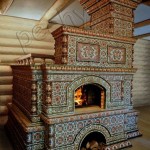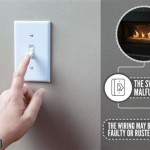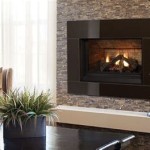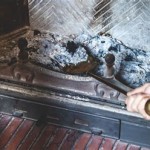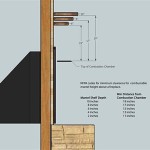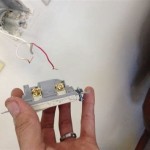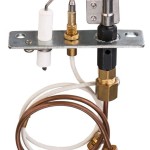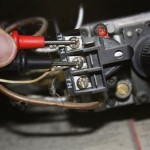Gas Fireplace Problems: Addressing Unpleasant Smells
Gas fireplaces offer a convenient and aesthetic heating solution for many homes. However, the presence of unusual or unpleasant smells emanating from a gas fireplace can indicate underlying problems requiring immediate attention. These smells not only detract from the enjoyment of the fireplace but might also pose potential health and safety risks. Understanding the causes of these smells and knowing how to address them is crucial for maintaining a safe and comfortable home environment.
The sources of smells originating from a gas fireplace can range from relatively minor issues to more serious concerns involving gas leaks or malfunctioning components. Identifying the specific smell is the first step in diagnosing the problem. Common smells associated with gas fireplaces include a burning smell, a sulfur-like odor (resembling rotten eggs), a musty smell, and a chemical or plastic-like scent. Each of these smells suggests a different potential cause, which requires specific troubleshooting steps.
Before attempting any troubleshooting or repair, it is imperative to ensure safety. If a strong gas odor is detected, immediately evacuate the premises and contact the gas company or emergency services. Do not attempt to operate any electrical appliances or light any open flames, as this could ignite the gas and cause an explosion. Even if the smell isn't overtly strong, turning off the gas supply to the fireplace is a prudent first step until the source of the odor is identified and rectified.
Identifying and Addressing Burning Smells
A burning smell from a gas fireplace is a frequent occurrence, especially when the fireplace is used for the first time in a season or after a period of disuse. This smell is often caused by dust, debris, or accumulated spiderwebs burning off the surfaces of the fireplace, including the logs, burner, and internal components. The smell is usually temporary and diminishes after the fireplace has been running for a short period.
To mitigate the burning smell, thorough cleaning of the fireplace is recommended. This includes vacuuming the firebox, logs, and burner assembly. A soft brush can be used to gently remove dust from delicate components. Ensure that the gas supply is turned off and the fireplace is completely cool before commencing the cleaning process. It is also advisable to check the venting system for any obstructions that could contribute to the accumulation of dust and debris. A professional chimney sweep can inspect and clean the vent if necessary.
If the burning smell persists even after a thorough cleaning, it could indicate a more serious problem. Over time, the ceramic logs in the fireplace can degrade or crack, leading to the release of particles that burn and emit an odor. Similarly, residue from cleaning products or improper log placement can also contribute to prolonged burning smells. Inspect the logs for any signs of damage or improper positioning. If the logs are damaged, they may need to be replaced with manufacturer-recommended replacements. Consult the fireplace's owner's manual for specific log placement instructions.
Furthermore, components such as the pilot light assembly or the burner itself can become obstructed with soot or carbon deposits. These deposits can burn unevenly and produce a persistent burning smell. A qualified technician should inspect and clean these components to ensure proper combustion and eliminate the source of the odor. Attempting to clean these parts without proper training and equipment can damage the fireplace and create a safety hazard.
Detecting and Responding to Gas Leaks (Sulfur-Like Smell)
The most concerning smell associated with a gas fireplace is a sulfur-like odor, often described as resembling rotten eggs. Natural gas is odorless, but gas companies add a sulfur-containing compound called mercaptan to make gas leaks easily detectable. The presence of this smell indicates a potential gas leak, which is a serious safety hazard requiring immediate action. Even a faint smell should be treated with utmost caution.
If a sulfur-like smell is detected, the first and most important step is to evacuate the building immediately. Do not attempt to locate the source of the leak or turn off any electrical appliances, as this could ignite the gas. Once outside, contact the gas company or emergency services from a safe distance. Provide them with clear information about the location and the nature of the problem.
The gas company will dispatch trained technicians to locate and repair the gas leak. They will use specialized equipment to detect the source of the leak, which could be in the gas supply line, the fireplace connections, or the gas valve. Once the leak is located, they will take the necessary steps to repair it safely and effectively. It is crucial to allow qualified professionals to handle gas leaks, as attempting to repair them without proper training and equipment can be extremely dangerous.
After the leak has been repaired, the gas company will typically relight the pilot light and ensure that the fireplace is functioning safely. They may also recommend a complete inspection of the fireplace and gas line to prevent future leaks. Regular maintenance, including leak testing, is essential for ensuring the safety of a gas fireplace.
Addressing Musty and Chemical Smells
Musty smells emanating from a gas fireplace are often related to moisture accumulation within the fireplace or the surrounding area. This is especially common in fireplaces that are located in damp basements or areas with poor ventilation. Moisture can promote the growth of mold and mildew, which produce a characteristic musty odor.
To address musty smells, it is important to identify and eliminate the source of the moisture. This may involve repairing leaks in the chimney, improving ventilation in the room, or using a dehumidifier to reduce humidity levels. Cleaning the fireplace and the surrounding area with a mold and mildew cleaner can also help to eliminate the odor. Ensure that the cleaning products are safe for use around gas appliances and follow the manufacturer's instructions carefully.
In some cases, musty smells can also be caused by nesting animals in the chimney. Birds, squirrels, or other small animals may build nests inside the chimney, which can trap moisture and debris, leading to unpleasant odors. A professional chimney sweep can inspect the chimney for nests and remove them safely. Installing a chimney cap can prevent animals from entering the chimney in the future.
Chemical or plastic-like smells are less common but can occur, particularly in newer fireplaces. These smells are often caused by the off-gassing of new materials used in the fireplace construction, such as paints, sealants, or plastics. The smell usually dissipates over time as these materials fully cure. Increasing ventilation in the room and running the fireplace for short periods can help to accelerate the off-gassing process.
However, if the chemical smell persists or is accompanied by other symptoms, such as headaches or nausea, it could indicate a more serious problem. Certain cleaning products or lubricants used on the fireplace can emit harmful fumes when heated. Ensure that only manufacturer-recommended products are used on the fireplace. Furthermore, a malfunctioning component, such as an overheating control module, could also be the source of the chemical smell. In such cases, it is essential to consult a qualified technician to diagnose and repair the problem.
Preventative maintenance is key to avoiding many of the problems that can lead to unpleasant smells from a gas fireplace. Regular inspections, cleaning, and servicing by a qualified technician can identify and address potential issues before they escalate into more serious problems. This includes checking the gas lines for leaks, cleaning the burner and pilot light assembly, inspecting the venting system, and ensuring that all components are functioning properly. Following the manufacturer's recommendations for maintenance and operation will help to ensure the safe and efficient operation of the gas fireplace for years to come.

Here S Why Your Gas Fireplace Stinks Full Service Chimney

Here S Why Your Gas Fireplace Stinks Full Service Chimney

Why Your Gas Fireplace Stinks Chimney Experts

Vent Free Fireplace Odor

10 Common Gas Fireplace Problems And How To Solve Them Black Lion

How To Get Rid Of Fireplace Smell Vertical Chimney Care

How To Get A Smoke Smell Out Of Fireplace Home Repair Maintenance

Vent Free Fireplace Odor

Reasons Your Gas Fireplace Isn T Working Experts

Here S Why Your Gas Fireplace Stinks Full Service Chimney

